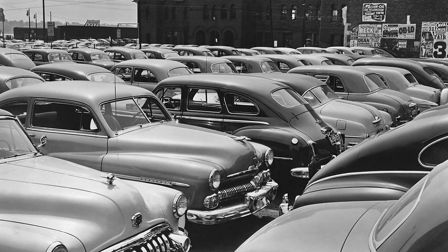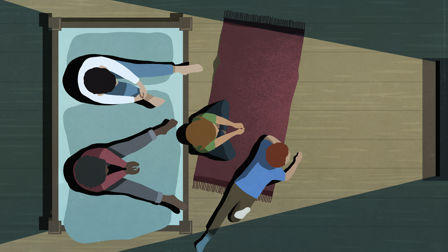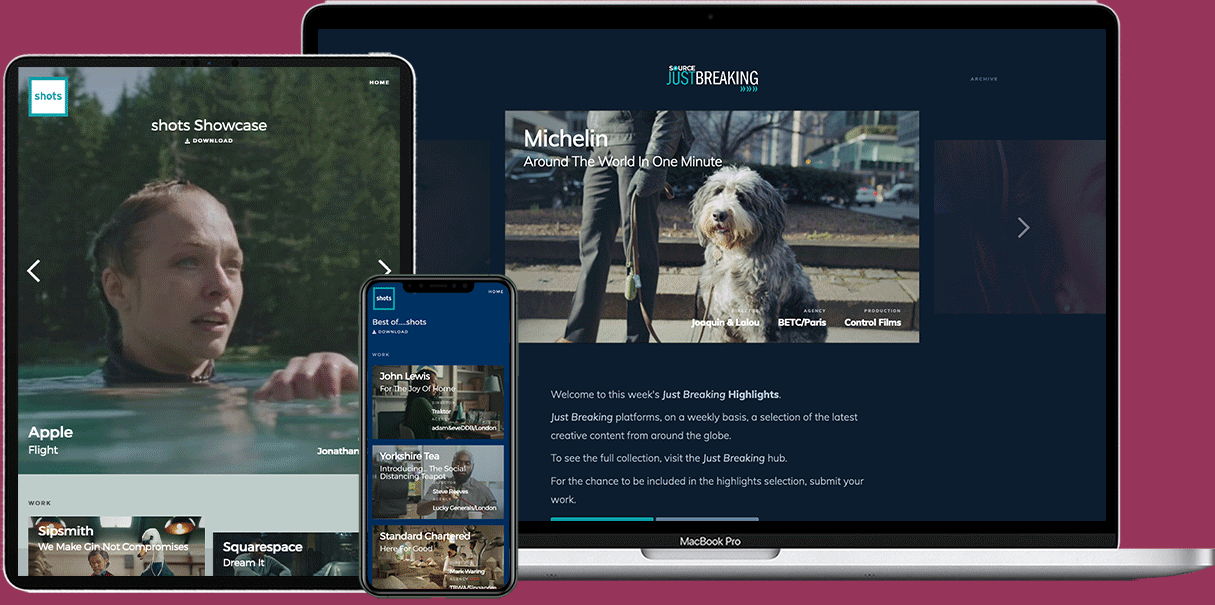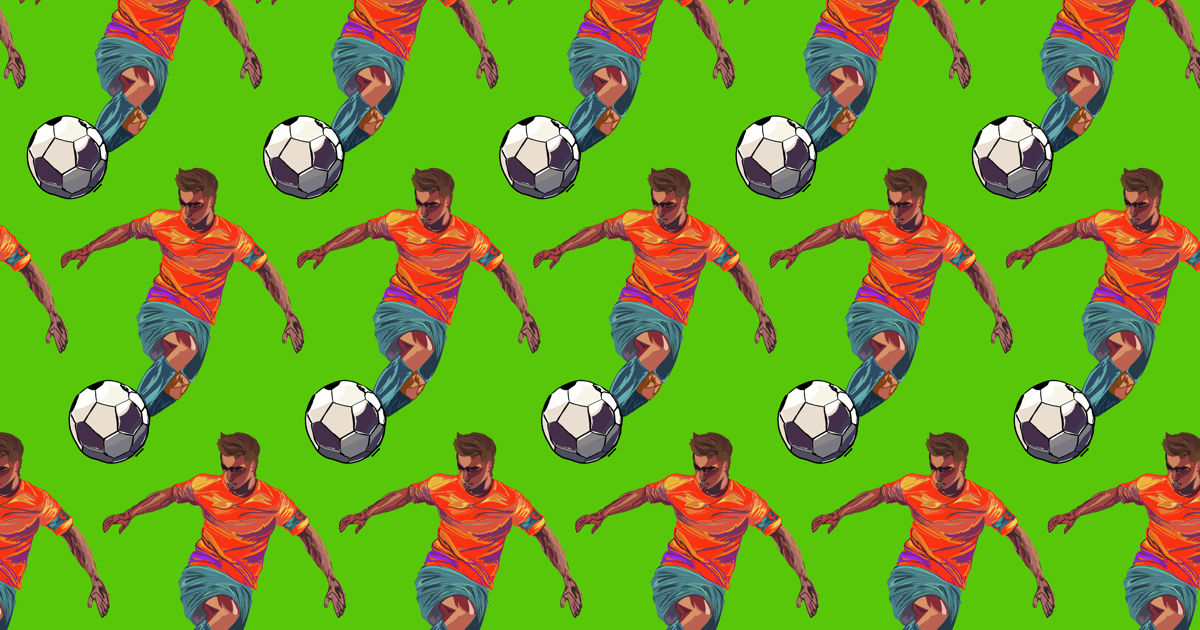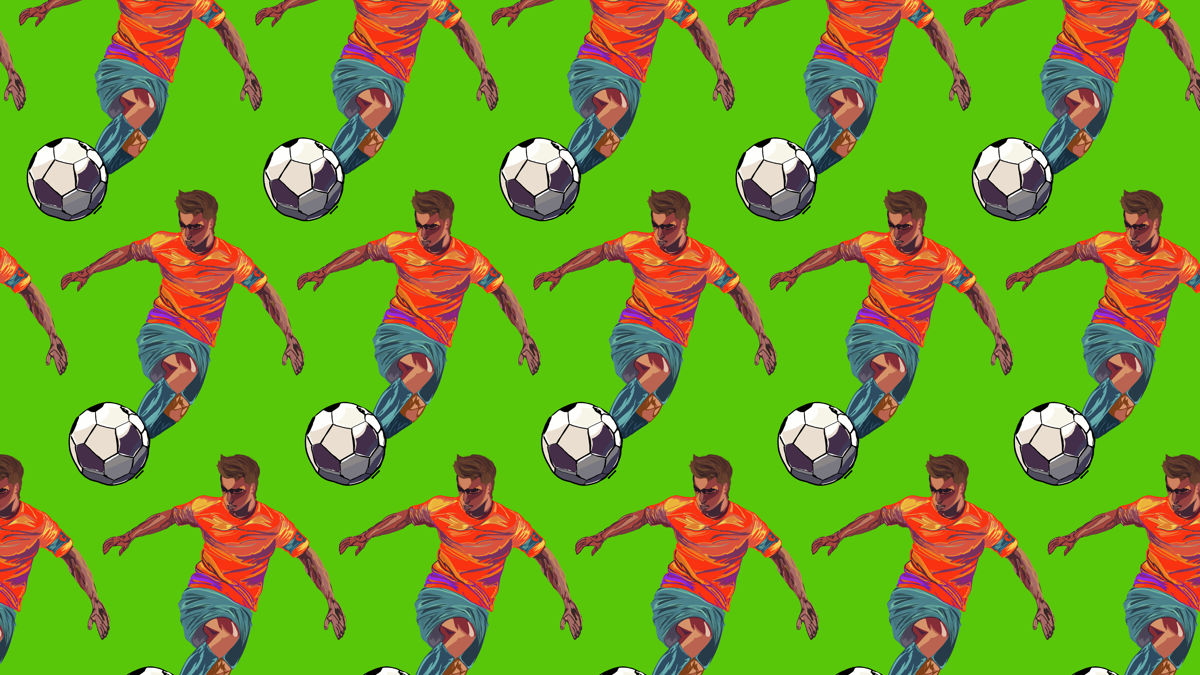How to create ads with football megastars
With the Euros coming to its dramatic conclusion, Josh Pearce and Sean Johnson, CDs at Dark Horses, draw on their experiences of creating ads with such stars as Beckham, Messi, Kane, and more, to share tips on handling sporting egos, pitching off-pitch ideas and what happens when a shoot goes off-target.
Considering one-half of this creative team [Sean] doesn’t like football, we’ve worked with enough elite players to fill several pages of a World Cup sticker book.
Despite last night's disappointing result for the Lions [boo], England did reach the EURO 2024 final [hooray] and the industry press has been scrambling for relevant content. In the light of this we’ve created a guide that may or may not be helpful if you ever get your hands on a creative brief that features a professional footballer.
Do your research
Watch everything the player has done with brands. See how they perform, how/if they can deliver dialogue and who the director was. Watch interviews to see what kind of situations or topics bring out their personality.
Generally, [footballers are] media trained to within an inch of their lives.
Find out their likes and dislikes and figure out if there’s a way to incorporate the former into the script. Flatter their egos with the details, and get them doing things they’re comfortable with because as soon as they get uncomfortable, things can get awkward and your face will ache with stress.
Give them something to do
It sounds incredibly obvious, but footballers are not actors. And the second you assume they can act, you’re in trouble. Generally, they’re media trained to within an inch of their lives. Their personal brand/image is curated by a team of people who often have many eyes on how a piece of communication will be perceived by their fans.
The space they’re most comfortable expressing themselves is on the pitch, not on set in front of 40 random people eyeballing them and taking sneaky pictures.
We try to schedule the ‘fun’ scene as the first scene we shoot to loosen them up.
We’ve found that the best way to avoid them clamming up or feeling too awkward is by giving them something to do. Something in their wheelhouse or something fun they wouldn’t normally get to do. And something to focus on other than the camera. The most obvious thing is kicking a ball – which doesn't always lead to the most interesting creative work.
So over the years, we’ve approached this in different ways. We had Harry Kane blasting a fire extinguisher at some burnt gingerbread men; Phil Foden fishing (he loves fishing); Kyle Walker tiptoeing over laser tripwires, and Lionel Messi… eating crisps.
We also try to schedule the ‘fun’ scene as the first scene we shoot to loosen them up. If their focus is on doing something other than acting you’ll get a far more relaxed and natural performance.
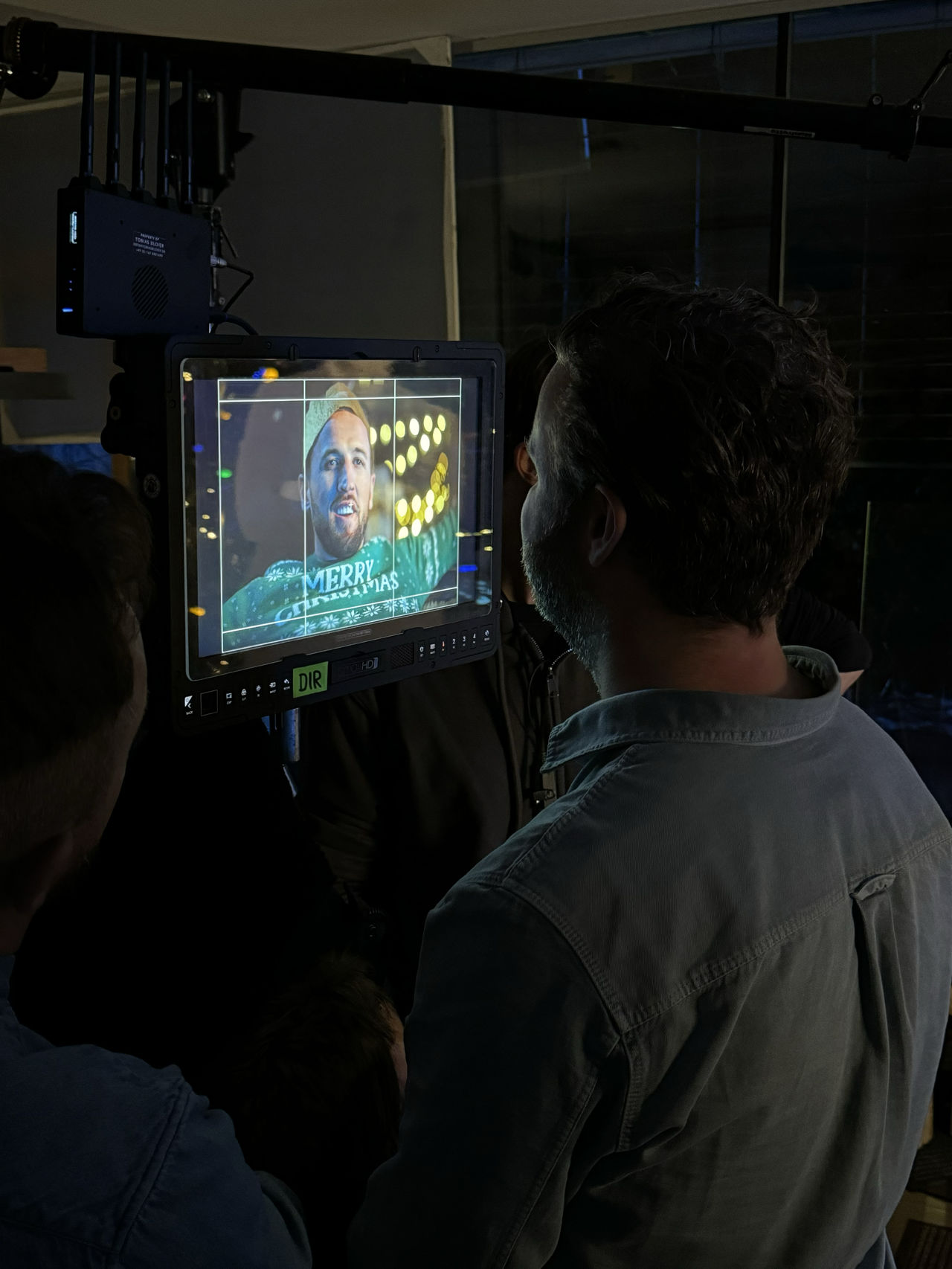
Avoid dialogue
Think Michael Owen’s Dubai helicopter tours; Wayne Rooney’s performance in the Independence Day 2 trailer; any David Beckham spot. Footballers, with all the best will in the world, struggle with words.
So when we write a script, we try to avoid dialogue. If you’ve got two hours with a footballer, you don’t want to burn through your time and their patience by repeating the same line over and over – especially, when you know deep down they’re never gonna deliver it how you imagined when you first wrote the script.
Work with directors who 'get' football
When all is said and done, it will be very, very clear when a director doesn’t.
Rehearse, rehearse, rehearse
When we shot with Lionel Messi, we had a two-hour window to capture everything, so we had to bring our a-game.
Footballers, with all the best will in the world, struggle with words… we try to avoid dialogue.
Every set change, every camera move, every everything had to be approached with precision. So when the big fella (he’s tiny) stepped on set we could rattle through everything with ease. This step also alleviates the clients’ nerves by ironing out any concerns and giving them a clear idea of what they’re gonna get before they get it.
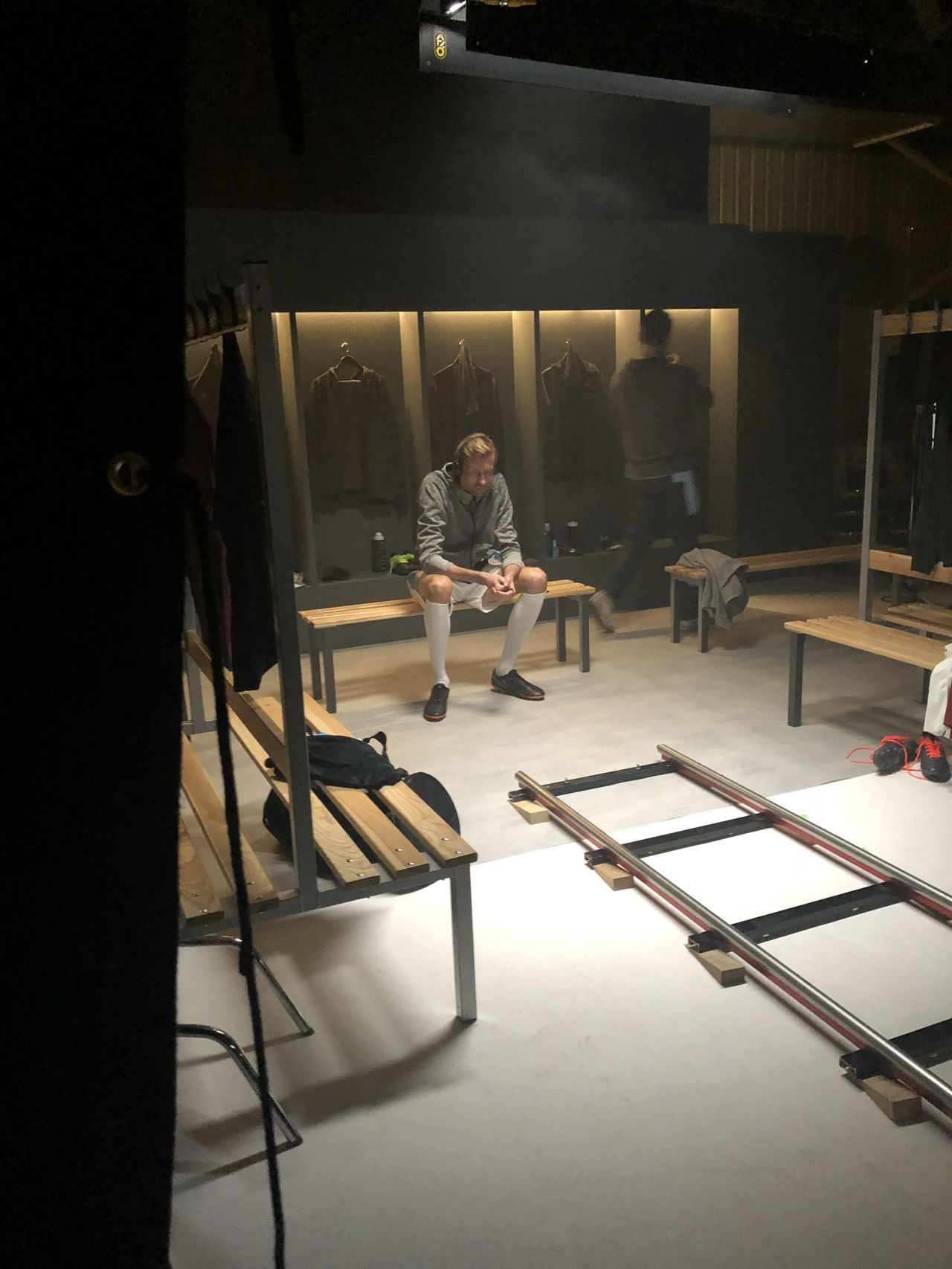
Don’t be afraid to humiliate yourself in front of your hero
When we know we’re going to be up against it in terms of time, we’ve recorded ourselves acting out an action on our phones for the player to watch before they’re asked to do it. That way, they know exactly what you’re asking of them.
It is deeply humiliating when you’re showing your crap attempt at acting to your childhood hero, Eric Cantona.
This is particularly helpful when shooting remotely. But it is also deeply humiliating when you’re showing your crap attempt at acting to your childhood hero, Eric Cantona.
Keep them busy
They don’t want to be there. The second they step foot on set they’re already ready to go home. So the last thing you want to do is give them any downtime to scroll TikTok or play Candy Crush. Not only does it kill the momentum of the shoot but it also, from our experience, irritates the life out of them.
They’re being paid to be in your silly little ad campaign, not to sit around in a room full of strangers who are dicking around with some technical thing they couldn’t give a shit about.
If you don’t get it in three takes, you’re not gonna get it
That’s it really. The more you try, the more they’ll resent you.
Keep rollin’ rollin’ rollin’
When the first AD shouts “Action!” it’s amazing how quickly players can clam up. So we like to keep the camera rolling between takes, because more often than not, when they feel like they’re not being filmed you’ll get something way more natural.
The last thing you want to do is give them any downtime to scroll TikTok or play Candy Crush.
This is particularly helpful when you need your arse saving in the edit. And at the very least you might capture something suitable for the 100,000 social assets you’ll undoubtedly need to capture alongside the main TVC.
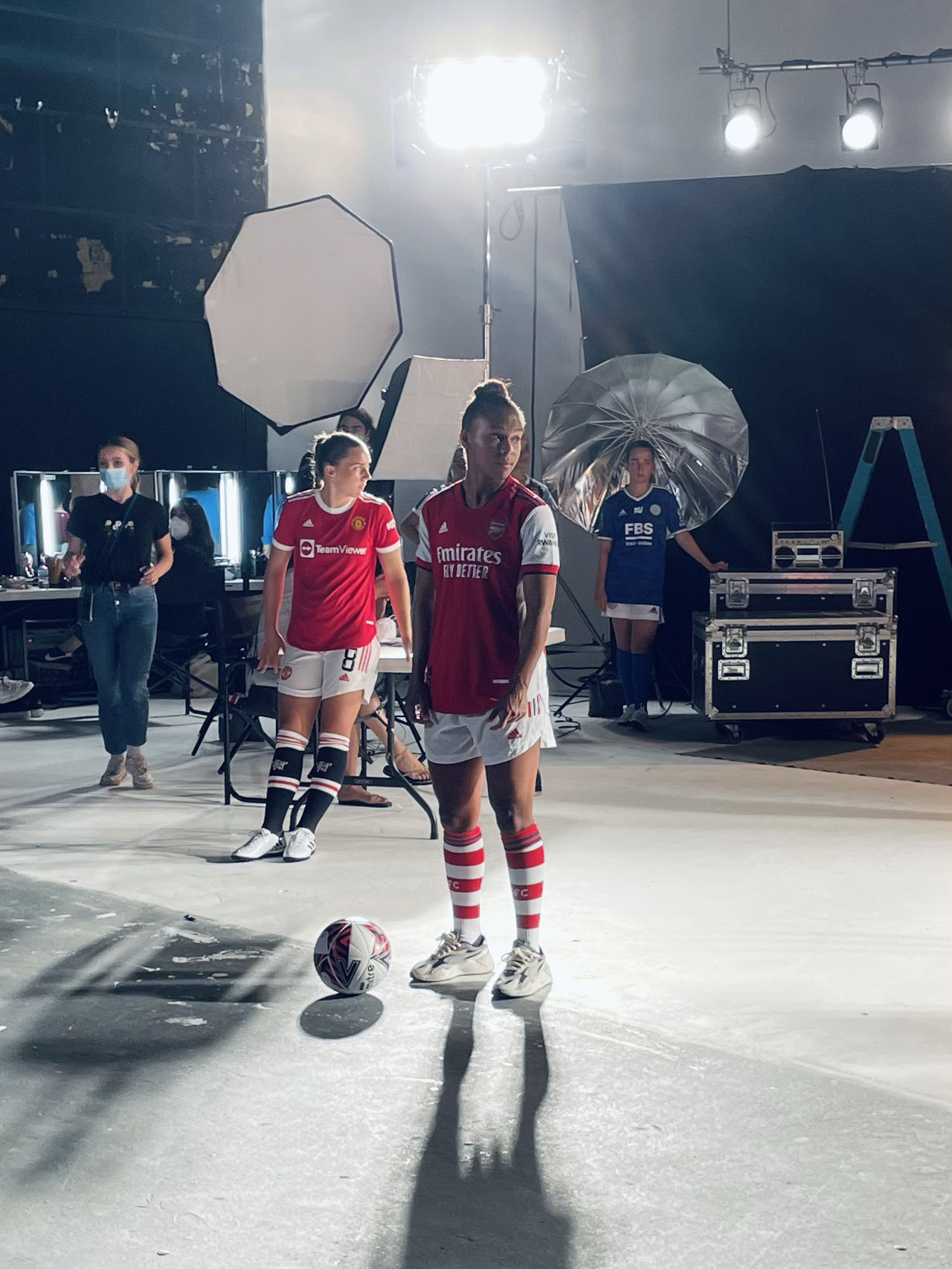
Lean on your body double
When shooting with footballers, body doubles are worth their weight in gold. Not only do body doubles allow you to rehearse absolutely every second of the film that features talent, but they also allow you to capture much more than your 2hrs with the player.
By grabbing smart over-the-shoulder shots, or shots of hands, or legs or feet or whatever, you’re reducing the amount you have to capture with the talent. Doubles often become unsung heroes in the edit room.
Try your luck
There will be ideas you write into your script that you love, that the player won’t like or feel comfortable with. Especially if they’ve not understood the creative vision or the context of a scene - which can be common when they receive it over email. If you really believe something they don’t like could work, keep it up your sleeve and if you have time at the end of the day, try and get them to do it.
When shooting with footballers, body doubles are worth their weight in gold.
Once they’ve seen how the rest of the ad has played out and they better understand the tone and context, they might just give it a go.
Prepare for the worst, and don’t be precious
We’ve had players turn up on set late, injured, tired, moody and with the attitude that they’d rather be anywhere else. So when you’re writing a script, figure out the one most important thing you’d need to capture with them. So if everything else went terribly wrong and you only ended up with 20 minutes of their time, you’d still be able to bang out a half-decent edit. Once you’ve figured that out, try and shoot that scene first. Then at the very least you know you’re covered.
Secondly, on the day, some of your ideas are simply not going to work. So have alternative actions or lines of dialogue up your sleeve ranging from nuanced and subtle looks, to something a little bigger. There’s nothing worse than realising that the comedy beat you’ve agonised over for months is going down like a lead balloon and there’s no one there to save you.
If you follow some of these simple pointers you might just make the process a little less excruciating/panic-inducing.



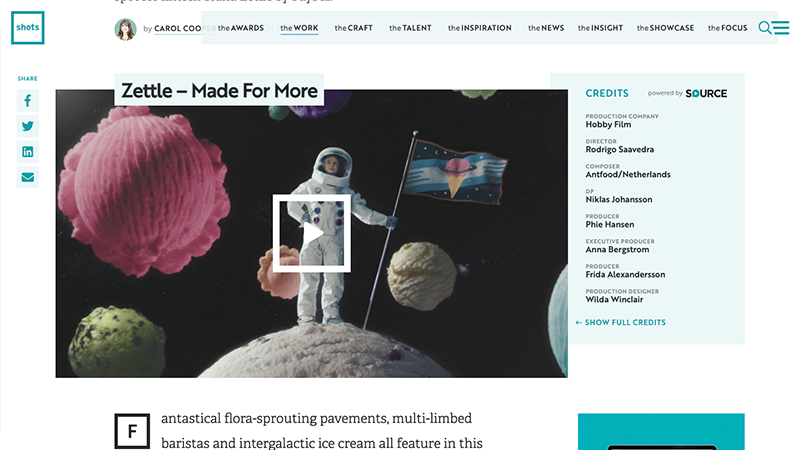
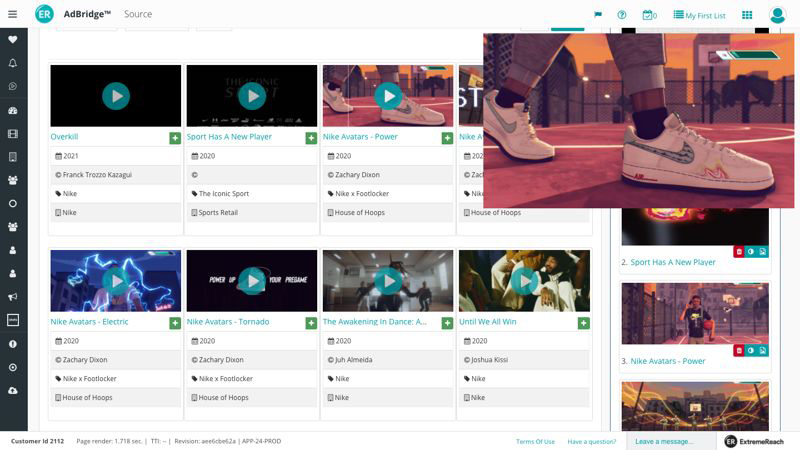
 + membership
+ membership


